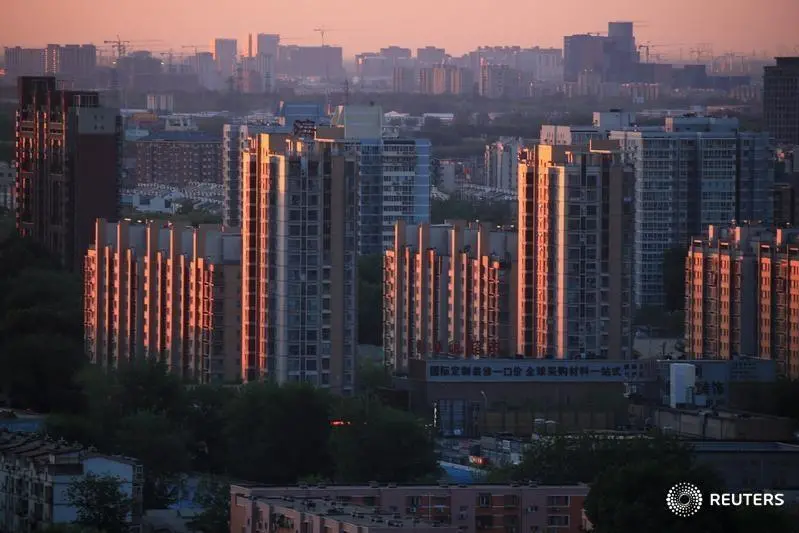PHOTO
China's home prices gained momentum nationally in February, rising for a second consecutive month driven by pent-up demand even in smaller cities, but prices have yet to recoup all their losses and there remains a sizable stock of unsold homes.
Average new home prices in February edged up 0.3% month-on-month from a 0.1% gain in January, according to Reuters calculations based on National Bureau of Statistics (NBS) data, the fastest pace since July 2021.
Since mid-2021, the property sector has grappled with a liquidity crisis, with developers delaying or defaulting on debt payments as they struggled to sell apartments and raise funds.
Battered sentiment improved after China's abrupt U-turn in December on its restrictive zero-COVID policy, with some home buyers trickling back into the market in January.
"The (February) reading came as a surprise to me as national home prices are expected to remain low in the first half of the year before rising in the second half," said analyst Ma Hong at Zhixin Investment Research Institute, who attributed the price gain to pent-up demand spurred by supportive policies.
Current home prices remain a little lower than at the end of the second quarter of 2021 when the downward cycle of prices started, he said.
In annual terms, prices fell 1.2%, marking the slowest pace in seven months and narrowing from a 1.5% drop in January.
In February, 55 of the 70 cities surveyed by the NBS saw growth in new home prices month-on-month, up from 36 cities in the previous month.
Among the 66 tier-two and tier-three cities, 51 saw new home prices rise in February, compared with 34 cities in January.
China's yuan strengthened on Thursday, as signs the property market is stabilising raised expectations of a broader economic recovery after Beijing dropped its zero-COVID strategy.
UNSOLD HOMES
The large number of unsold new homes in small and medium-sized cities clouded the outlook for a continued rebound in the sector, analysts said.
Developers are still under great pressure to reduce their stock of unsold homes, said Liu Lijie, analyst at Beike research institute.
"Despite the apparent stabilization in property prices, its sustainability remains unclear. Beijing may have to do more to instill confidence in the property sector," Nomura analysts said in a note commenting on the data.
Official data on Wednesday showed the area of unsold homes stood at 655 million square metres as of the end of February.
A manager at a large real estate firm said second- and third-tier cities were unlikely to see a sharp drop in new housing inventory "as market confidence has only just been restored" there.
Official data for January-February on Wednesday showed much narrower declines in home sales, developer investment and construction starts, suggesting the real estate sector was stabilising.
Local governments continued to step up efforts to boost demand this year with around 30 cities optimising policies on provident housing funds, such as allowing smaller down payments and more loans.
By the end of 2022, outstanding mortgages grew by just 1.2% to 38.8 trillion yuan ($5.6 trillion), decelerating by 10 percentage points from the end of the previous year, according to central bank data. ($1 = 6.8993 Chinese yuan) (Reporting by Liangping Gao, Qiaoyi Li and Ryan Woo; Additional reporting by Shuyan Wang; Editing by Jacqueline Wong and Sonali Paul)





















